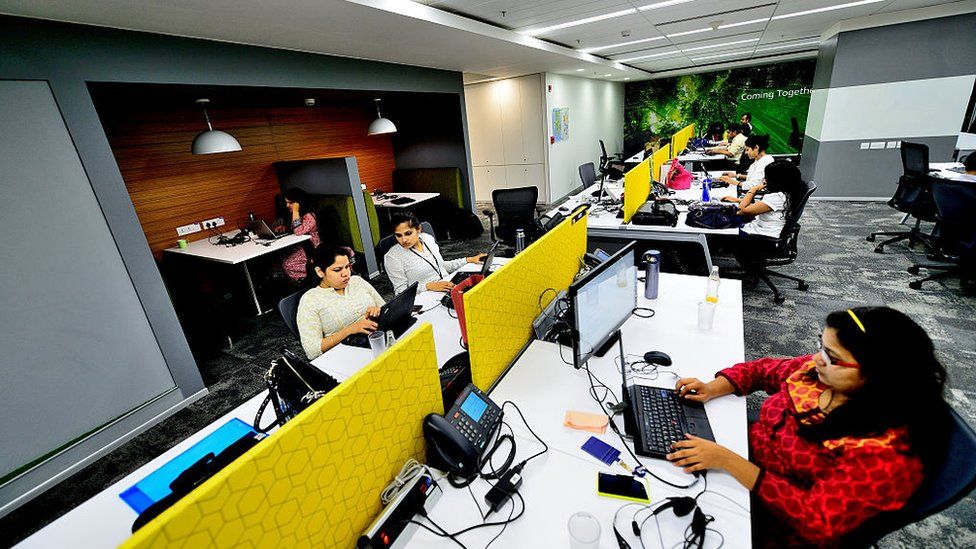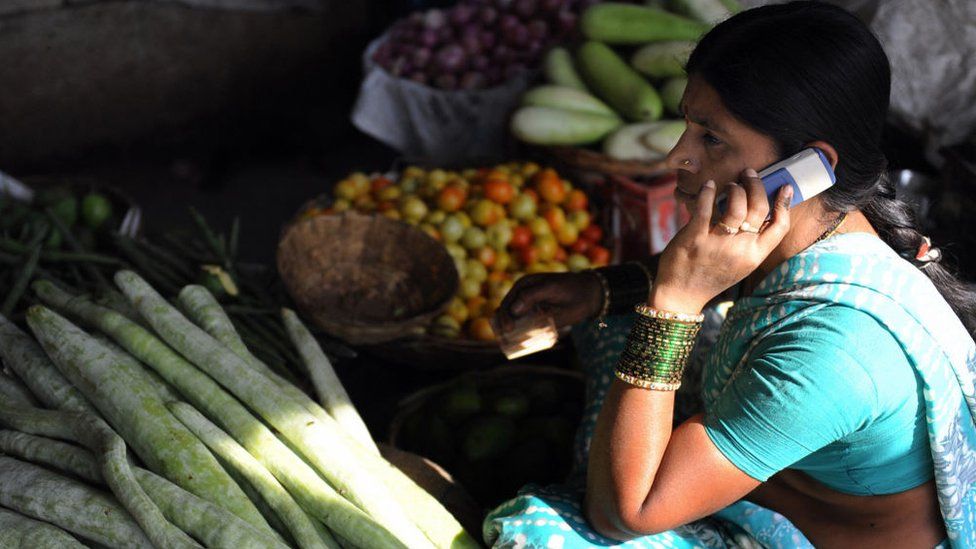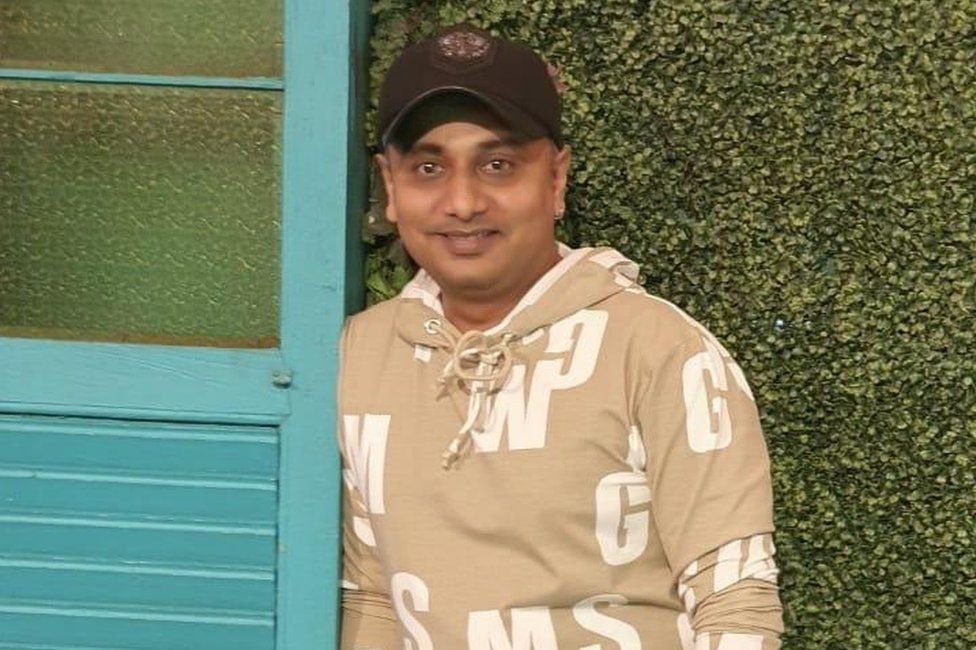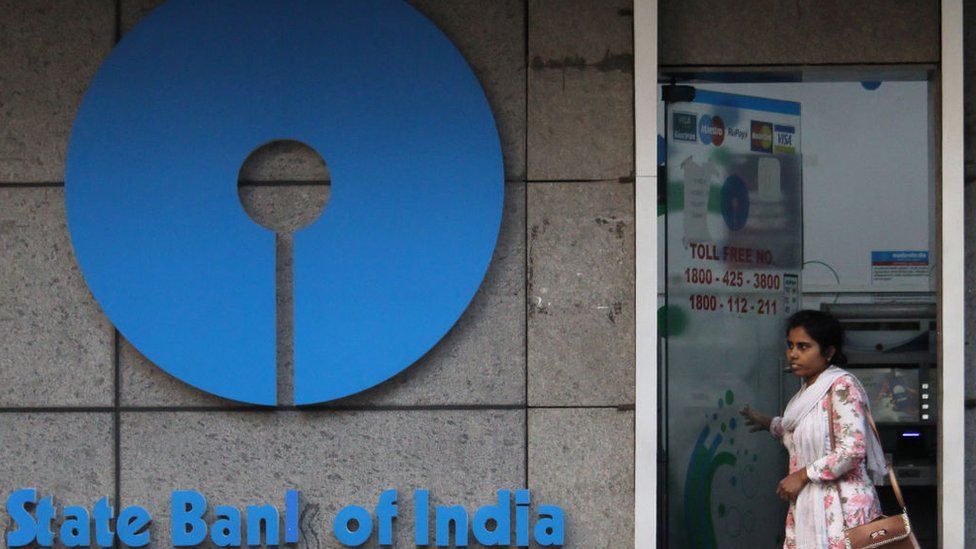The 'saviour' loan apps that trapped pandemic-struck Indians
 image copyrightGetty Images
image copyrightGetty Images"If you don't pay the amount by today, I am calling your friends and relatives. You will regret that you ever decided to take a loan!"
This was just one of many intimidating phone calls Vineeta Teresa endured for nearly three months last year. The men - who identified themselves as loan recovery agents - would call her regularly and shout at her. And the threats often turned abusive.
Ms Teresa found herself in a severe financial crunch in the weeks after India went into lockdown to stem the spread of the coronavirus. When banks turned her away, she was led to apps that offered "instant loans".
All she had to do was provide her bank account details, government ID and references. The loan was credited to her account in minutes. "It's that simple," she says.
The apps proliferated as the pandemic and the lockdown left millions in India jobless. While many working class jobs have returned, salaried professionals - from engineers and software developers to salesmen - and small businesses have struggled to survive. So the apps helped them out when they needed money quickly.
For loans as small as $150 and for periods as short as 15 days, these apps charge a one-time processing fee, a convenience fee and steep interest rates - some as high as 30%. Compare this to to Indian banks, which lend at 10-20% with a tenure of at least 12 months.
 image copyrightGetty Images
image copyrightGetty ImagesThe other problem is that while some of these apps work within India's banking norms, many others don't appear to be legitimate.
Several states are now probing dozens of such lending apps after they were accused of violating rules and using aggressive methods to recover loans. India's Enforcement Directorate (ED), which investigates financial crimes, has also stepped in to establish a money trail. Google recently removed several such apps from its Playstore after receiving complaints that they had violated terms.
Officials have found that many of them are not even registered with India's central bank, which has warned people about "the growing number of unauthorised digital lending platforms/mobile apps". It has also advised those in need of money to approach legitimate financial institutions.
Experts say once a borrower secures a loan, their data gets shared with similar apps, which then start pumping them with notifications of higher credit limits, luring them deeper into a web of unregulated borrowing. Ms Teresa says she ended up with eight loans.
And the calls from recovery agents can get so harrowing that some people borrowed money again just to pay off the first loan. "It's like a vicious circle from one loan to another," said one borrower who wished to remain anonymous.
 image copyrightGetty Images
image copyrightGetty ImagesLike many other apps, at the time of download, these apps too ask for permission to access contacts and photo galleries. When an unsuspecting borrower agrees to this, they become more vulnerable.
"When I investigated one such case, I found that these apps are actually not only able to read and access your contact list, they're also capturing your images, videos and location. They also know many things about you - like, where you have actually used this money, to whom you have transferred this money," says cyber security expert Amit Dubey.
The threats too become personal. "I saw the toll it took on my children," Ms Teresa says. "I have seen the pain my children were going through when they saw me continuously on calls, breaking down and not able to focus on work or on my family."
Jenis Makwana says it was this kind of harassment that played a role when his brother Abhishek killed himself in November.
Abhishek, a screenwriter for Indian television, saw business dry up during the lockdown due to restrictions on filming and payment delays. So he borrowed about $1,500 - it wasn't long before the threatening calls began, Jenis recalls. He says they have continued after his death.
 image copyrightCourtesy Jenis Makwana
image copyrightCourtesy Jenis MakwanaBoth Makwana's and Ms Teresa's cases are now being investigated by police along with hundreds of similar complaints.
"We have to keep on digging, this problem is just so deep," says Pravin Kalaiselvan, who has been tracking these cases with a small team of experts that shares whatever they find with police.
Mr Kalaiselvan got drawn into it when a close friend borrowed money from one of these apps and was harassed when he couldn't repay the loan on time. So he decided to investigate further and started a support group for people who have had similar experiences with such apps.
"In the last eight months my team has received more than 46,000 complaints and 49,000 distress calls. We receive more than 100 to 200 distress calls a day," he says.
Mr Kalaiselvan petitioned India's Supreme Court, seeking a ban on hundreds of these apps. But the court asked him to approach the federal government.
In December, 17 people were arrested on charges of cheating, fraud and harassment after investigations led police to call centres in Gurgaon, a suburb of capital Delhi, and the southern city of Hyderabad.
Police say they are trying to trace people further up the chain, possibly even abroad, but experts say it's hard to establish links between those arrested and developers. Also, the borrowers are scattered across the country and no single app connects them all.
 image copyrightGetty Images
image copyrightGetty ImagesBut Mr Dubey says the apps have a more sinister agenda than just targeting the financially vulnerable. "The invisible entities running such apps are interested in your personal data and there is a lot of money to be made out of this. This data can be stored and sold to criminal syndicates and also floated in the dark web."
On one occasion, he says he found a cluster of apps hosted on the same server, programmed by the same developer - proof that many of them share a source.
"What's more is that they are hosted on a server which is usually in China, away from Indian jurisdiction and control," he adds.
Experts say these apps are difficult to regulate because they operate as intermediaries, connecting borrowers to lenders. So without specific laws that target them, creating awareness may be the only way to stop them.
And that is exactly what Ms Teresa hopes to do.
"I do not want to be called a victim," she says. "The only way to fight back is by talking about my story so that others can learn from my experience."

Read more of our coverage on business and the economy




No comments